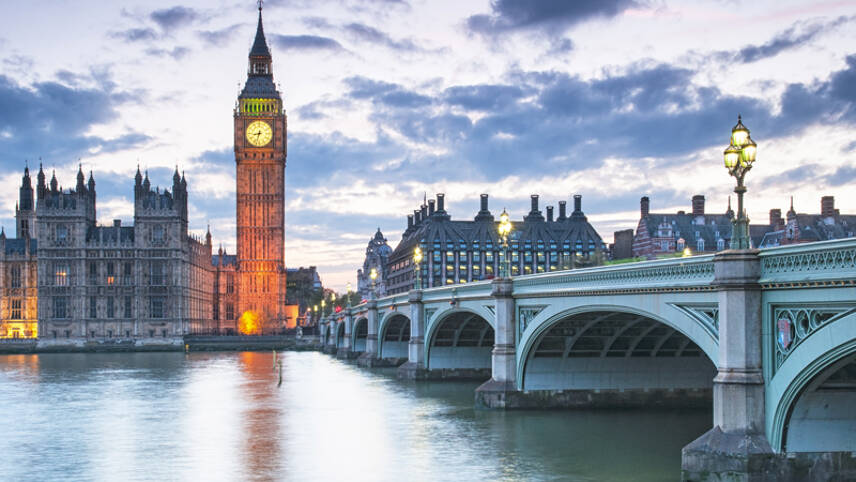Register for free and continue reading
Join our growing army of changemakers and get unlimited access to our premium content

So alleges the Energy and Climate Intelligence Unit (ECIU), which has set out new analysis highlighting policy gaps and project delivery delays around issues such as home energy efficiency, heat pumps and reducing electricity costs.
The UK Government first set out an Energy Security Strategy in April 2022 under Boris Johnson. This initial version, which sought to bolster delivery plans for several of Johnson’s headline 2030 energy transition commitments, was subsequently tweaked and fleshed out 11 months later under Rishi Sunak – shortly after his creation of the Department for Energy Security and Net-Zero (DESNZ).
In four of the ten key areas covered by the updated Strategy, called ‘Powering Up Britain’, the ECIU claims that policy progress has been nowhere near the level of the target.
On home energy efficiency, DESNZ had aimed for 450,000 homes to receive support for retrofittng through the ECO4 programme by 2026. Only 115,000 have been retrofitted so far. If this pace of progress continues, only half of the target will be met.
Moreover, Sunak has scrapped forthcoming energy efficiency standards for private rented homes and set no new standards for owner-occupied homes nor social homes.
The Government has also been slow to rebalance electricity and gas levies to make electricity more affordable. This work is in progress but has been in the pipeline now for more than two years, with groups including the ECIU wary of further delays due to indications in documents from Ofgem and DESNZ.
Additionally, the ECIU has rapped the Government for its plans to accelerate the delivery of nuclear and offshore wind projects. These are the Conservative Party’s preferred low-carbon energy generation options.
The Strategy promised to reduce offshore wind planning consent times to a year but this has not happened. And, while Ministers have now intervened to help developers through heightened supply chain costs, this issue prevented any offshore wind bids from being delivered in the last annual clean energy auction round.
On nuclear, the UK Government has thrown its weight behind Sizewell C with more than £1bn of investment, and has set out a long-term vision of supporting both large projects and small reactors (SMRs). But the ECIU ranks progress as poor due to a lack of final investment decisions on large plants and gaps in planning for commercializing SMRs. These same concerns were recently raised by the Environmental Audit Committee, a cross-party group of MPs.
A further three of the ten policy topic aims included in the Strategy are ranked by the ECIU as having only been ‘partly’ delivered: decarbonising heat, speeding the grid connection and transmission process, and scaling renewables other than offshore wind.
edie reached out to DESNZ for a comment. A spokesperson said they “do not accept” claims that Britain is less energy-secure than it was two years ago.
They maintained that the UK has “one of the most secure and diverse energy systems in the world” and pointed to billions of pounds of spending on renewables, nuclear and energy efficiency this Parliamentary term.
Some areas of progress
The ECIU analysis does highlight that ‘Powering Up Britain’ policy pledges have been delivered, either in full or almost in full, in some areas.
These include supporting a 2030 target for the UK to host 10GW of low-carbon hydrogen production capacity, of which at least 5GW should be for renewable hydrogen. The Government has set out a low-carbon hydrogen standard and clear revenue support mechanisms through the hydrogen business model, under which contracts have already been awarded.
While we will need to wait until 2026 for a final decision on 100% hydrogen in home heating, Ministers have already set the direction of travel for hydrogen blending in the gas grid and the use of the fuel in industrial sectors.
Additionally, Sunak has followed through with his commitments to support North Sea oil and gas. The UK Government is progressing legislation that would mandate annual licencing rounds.
The ECIU, like many other green groups, has maintained that this move will do less to enhance energy security and cut energy bills than the Government claims, due to long lead times for these projects and the fact that North Sea basins are in decline.
Moreover, there has been fierce debate around whether this approach will undermine the UK’s own legally binding climate commitments and send the wrong message on the global stage. COP26 President Alok Sharma MP and Net-Zero Review Author Chris Skidmore both took a stand against the legislation on these grounds.
Sharma told the Commons: “It does make our international partners question the seriousness with which we take our international commitments.
“I do not believe, and it pains me to say this, that this Bill will advance that [COP28] commitment to transition away from fossil fuels. I also do not believe that those climate-vulnerable nations will think this Bill is consistent with the pledge that we and every other nation present made in Dubai.”
The Bill is now progressing through the House of Lords. It will, if passed, prevent any future Labour Government from easily following through on Kier Starmer’s pledge to end new North Sea oil and gas licencing.


Please login or Register to leave a comment.